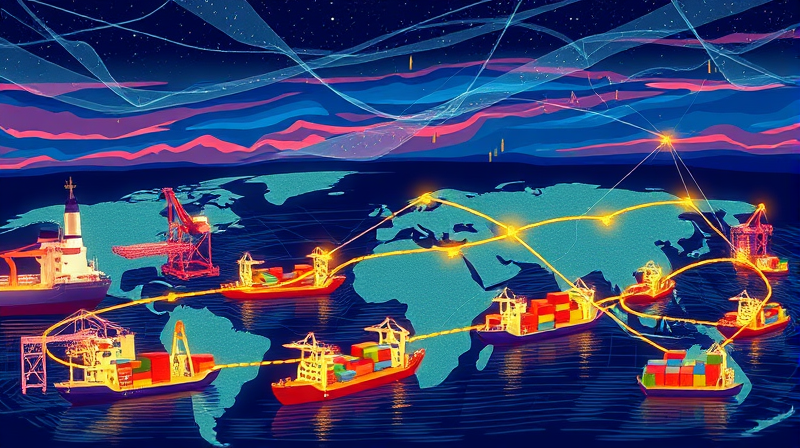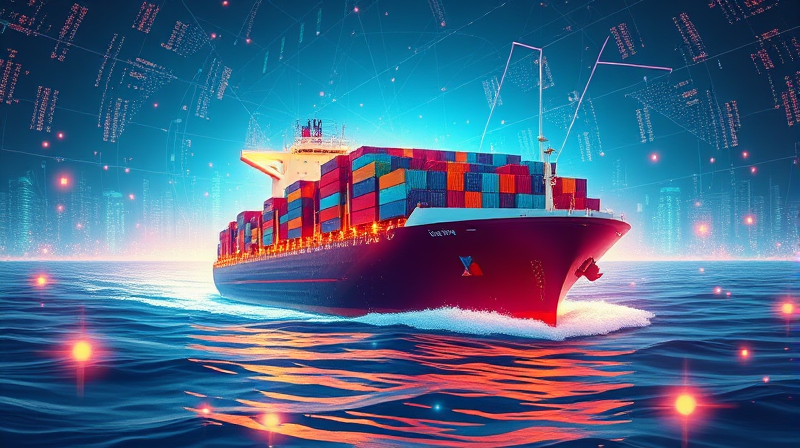
The supply chain industry is undergoing a profound transformation as blockchain technology moves beyond experimental pilots into mainstream investment. Long plagued by opacity, inefficiency, and fraud, global logistics networks are now embracing a new paradigm driven by distributed ledgers and digital tokens.
For investors, this shift represents a unique convergence of market growth, technological innovation, and regulatory demand. With forecasts predicting a rise from $1.17 billion in 2024 to as much as $33.25 billion by 2033, blockchain-powered supply chains have emerged as a truly investable, high-growth opportunity with the potential to reshape commerce worldwide.
Recent studies show compound annual growth rates ranging from 35% to nearly 60% over the next decade. The sustainability segment alone is valued at around $827.6 million and is expected to expand at a CAGR of 35.1% from 2025. Meanwhile, management solutions powered by blockchain are forecasted to exceed $130 billion by 2034.
Such projections underscore why venture capital, corporate investors, and private equity firms are allocating capital to startups, platform providers, and hybrid consortiums aiming to capture this accelerating demand.
Several forces are fueling the rapid embrace of blockchain across industries and regions. Companies face mounting pressure from consumers, regulators, and internal stakeholders to secure every link in the supply chain.
At the core of this revolution is the ability of blockchain to provide immutable, real-time data sharing across diverse stakeholders. Each transaction is recorded on a distributed ledger, ensuring that no party can alter or delete critical information without network consensus.
This architecture supports advanced features such as verifiable digital tokens for purchase orders, bills of lading, and quality certificates. When combined with IoT sensors and AI-driven analytics, companies can achieve near-instantaneous visibility into inventory levels, shipment conditions, and demand forecasts.
Moreover, blockchain’s native security features guard against unauthorized data breaches and system tampering. As security protocols evolve, we can expect next-generation encryption and identity management solutions tailored to large-scale supply networks.
Real-world deployments demonstrate how blockchain can tackle complex supply chain challenges, driving both efficiency and trust.
Looking ahead, several trends promise to accelerate blockchain adoption and unlock new value streams:
Decentralized supply networks will enhance resilience by removing single points of failure. Organizations are exploring peer-to-peer inventory exchanges to optimize capacity use and reduce carbon footprints.
The convergence of blockchain with AI-driven digital twins allows virtual modeling of supply chains. These digital replicas enable scenario testing, stress analysis, and predictive maintenance before real-world deployment.
Security innovations—including zero-knowledge proofs and multi-party computation—are set to bolster data privacy, even in public or consortium networks. This will be critical as systems scale and sensitive trade information is shared across borders.
Finally, the integration of ESG reporting features into blockchain platforms is empowering companies to transparently document carbon emissions, labor practices, and resource consumption, thus attracting sustainability-focused investors.
Despite its potential, blockchain integration is not without hurdles. Legacy ERP and warehouse management systems often require costly customization to interface with distributed ledgers.
Data privacy remains a top concern, especially when commercial and regulatory data coexists on the same network. Industry-wide standards and interoperability frameworks will be essential to drive ubiquity and unlock network effects.
In addition, governance and consensus mechanisms must balance decentralization with efficient dispute resolution to maintain trust and performance at scale.
Blockchain in supply chain management has progressed from a niche experiment to a major investable frontier. With market values set to skyrocket and transformative benefits already proven by industry leaders, the time to act is now.
Investors and enterprises that embrace this shift will gain a competitive edge by enhancing transparency, reducing costs, and meeting the world’s growing demand for ethical, sustainable commerce. As the technology matures and standards coalesce, blockchain-enabled supply chains will become the backbone of global trade, delivering value for stakeholders and reshaping industries for decades to come.
References













